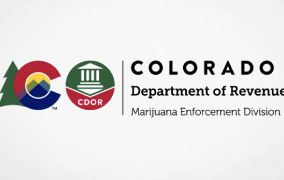The California gold rush started two hundred years ago in Northern California and made the great State it is. Today, California has another gold rush, but called the “green rush” with nuggets that are as good as gold. California is on the verge of having the largest cannabis industry in the world, and much wealth derived from it. Much can be said about cannabis, but few investors or entrepreneurs think that they have a partner in their endeavors, called Uncle Sam and he wants his share of the wealth from these nuggets.
UNCLE SAM AND HIS 70% EFFECTIVE TAX RATE
The Green Rush entrepreneur or investor thought he was on easy street, his pocket full of cash, until he filed his federal tax return for 2018. He discovers, through his federal audit, that he is faced with an effective overall federal tax rate of 70% or more. Additionally, there is the possibility of fines, penalties, interest, etc. that he would be subject to if it is found he participates in a money-laundering scheme with his illegal product called cannabis. If it is determined that he cannot prove he is operating completely legal, then the IRS is capable and legally required to audit several years “before” he even started his plant-touching business! Remember, with the Internal Revenue Service, the burden of proof shifts to the taxpayer…so the entrepreneur must “prove” he is doing everything legal within his cannabis touching business.
LET’S DO THE MATH
The California entrepreneur is only receiving thirty cents on the dollar, considering he is paying a 70% effective tax rate and his remaining thirty cent profits goes to paying his friends or investors
their hefty return on investment. The cannabis entrepreneur, as he is now considered, discovers only too late, he can’t even file under the federal bankruptcy laws since it is a federally illegal substance. He unfortunately considered, late, that he should have participated in the “black market,” because, no worries there, no federal tax, no watchful State agencies.
Now the California Black Market is Under Scrutiny
The California Black Market is much larger than the legal market, as much as three times greater. All this cash is flowing somewhere, and now federal agencies are closing in on these Underground thieves. The Underground bandits are not just individuals in these cannabis plant touching businesses but within the local and State agencies. It is no secret that local agencies have been on the “take” for years, look no further than Calexico, California for an example, whereas the FBI investigations found Calexico officials were paid $35,000 for obtaining a cannabis license. Additionally, there are law enforcement officers that look the other way when paid cash when his neighbor has a grow right next door.
Let us not forget the State agencies themselves are on the take too, for example, in Las Vegas, Nevada, the State taxing authority was not handing out lucrative cannabis distribution licenses to legally approved cannabis businesses, they were providing the licenses to only alcohol distribution companies. Is it any wonder that Las Vegas law enforcement resorted to a crack-down to stop all cannabis delivery companies so the alcohol industry would have a monopoly on all distribution? This makes sense. Furthermore, the most alcohol sold in the state of Nevada, is Las Vegas. Isn’t it convenient that the alcohol industry has a near monopoly on Nevada cannabis distribution?
Let us not forget the great State of California, whereas the Department of Justice has been investigating Weedmaps for all the participants in the Illegal Market so the Department of Justice can shut them down with the help of the Internal Revenue Service. All the names of the individual businesses on Weedmaps will be information that that Internal Revenue Service will use to go after the underground businesses advertising on Weedmaps. Additionally, the Inspector General is recommending to the Internal Revenue Service to use all the names within the State Cannabis Departments to identify those companies dealing with cannabis.
The federal law enforcement agencies will clean up the illegal market, just like in Nevada so the large corporations will have a monopoly on cannabis. California’s’ Department of Food & Agriculture had stated in 2018 that the limit put on outside grows is only one acre, but as of January 1, 2023, there is no stated limit to outside grows. What does this mean? One can surmise, that by January 1, 2023, that California’s illegal market will have better enforcement and the small cannabis operators will go out of business because of IRS’s unrealistic 280E ramification of a 70% effective tax rate. Accordingly, large corporations will come in 2023 with bundles of cash to grow on multiple acres, buy up small farms that are going bankrupt, and even buy larger companies that are having financial difficulties and investor woes. Of course, the IRS in 2021 has even said they would like to see banking rules loosen up, so the IRS does not have to put all their cannabis derived cash into warehouses. Hence, the banks will be open, as soon as 2022 for cannabis businesses and capital will flow for corporations and savvy investors picking up great deals in the cannabis sector.
One can easily surmise that the federal government will change the Schedule I classification of cannabis in or around January 1, 2023, or soon thereafter and eliminate the taxing effects of
280E. When this happens, large corporations in California will be operating just like the alcohol industry which have predominate control on the cannabis distribution in Nevada. Obviously, Uncle Sam will be happy with all the legal money coming in from the large corporations that pay Uncle Sam’s salary. The Internal Revenue Service does not need to spend time and resources on enforcement of cannabis, like the prohibition period when dealing with alcohol and the likes of Al Capone. History does repeat itself and investors should be mindful of this.
What should cannabis companies do to safeguard their investments
Hire professionals that know the workings of the Internal Revenue Service and how to structure a cannabis business the right way*, not “fly by the seat of your pants.” Unfortunately, there have been many cannabis companies formed by unsophisticated individuals that have no idea on how to run a business, much less what to do with the 280E ramifications. Most new businesses fail, 80% or more due to the lack of business acumen, much less any knowledge of IRC 280E
Keep meticulous accounting records, even more so than a regular business. The IRS will already have your business name in its system to “red flag” you because of the days when it was illegal. Now that your business is legal, still be wary that your business name will pop up for review, just be conscious of this, do not get lackadaisical because you think the days of 280E are over.
Remember you have a partner in your business, its Uncle Sam and he is not forgetful.
*Note: see wkfowlerconsulting.com or NACVA for classes on business strategic structuring and achieving more value for a Cannabis Dispensary


















